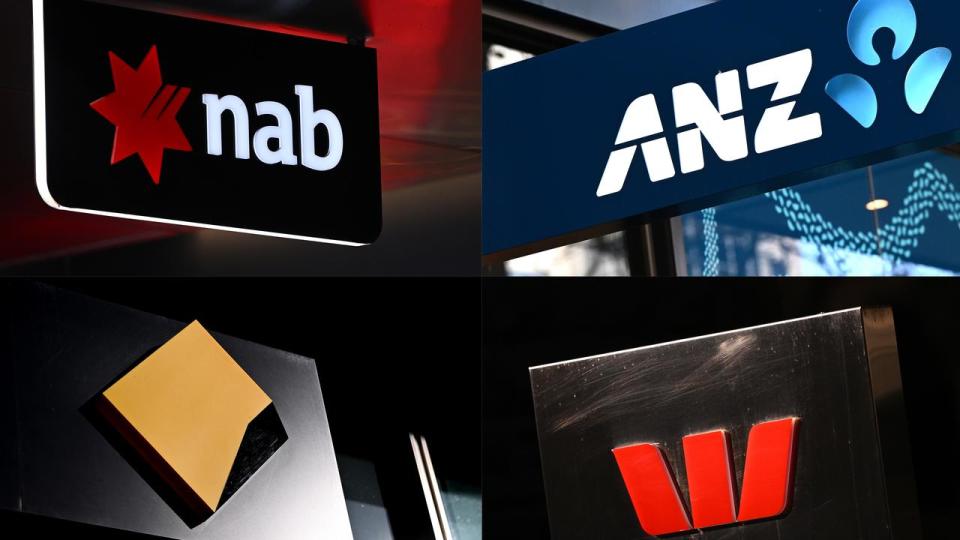RBA likely to hold rates as price pressures loiter
Mortgage-holders should be spared further weight on their debt burden following the Reserve Bank of Australia's board meeting this week, with economists broadly agreeing a pause in rate hikes will endure.
Due to meet over two days starting on Monday, the central bank's board members will pore over the latest economic data before making a decision on the cash rate on Tuesday.
Economic teams at all four of the big banks were expecting the benchmark rate to stay at 4.35 per cent, where it has been for months after an aggressive hiking cycle kicked off in 2022 to head off rising inflation.

With the economy growing feebly, the labour market slowly unwinding and inflation well down from its peak - albeit still above target - all four major banks expect the next interest rate move to be down.
Yet mortgage-holders stumping up hefty sums for their monthly repayments have a while to wait for relief with the Commonwealth Bank, National Australia Bank and Westpac all pencilling in a November start to cuts.
ANZ broke ranks last week to push back its forecasted start date until February 2025.
While tracking in the right direction, hotter-than-expected inflation data in the March quarter and in April, where it rose to 3.6 per cent from 3.5 per cent, suggests rate cuts are a while off.
Ahead of the June meeting, CBA head of Australian economics, Gareth Aird, said the board should have a "straight-forward decision" on their hands, with all key economic data broadly in line with the RBA's own forecasts.
In addition to the March quarter national accounts, jobs and inflation data, the RBA board also has state and federal budgets and the workplace umpire's annual minimum and award decision to digest since its last meeting in May.
The latter was unlikely to shift the dial, Mr Aird said, with the Fair Work Commission's 3.75 per cent rise lining up neatly with the RBA's expected trajectory for wages growth across the entire workforce.
Energy bill relief and other cost-of-living measures in state and federal budgets had economists asking questions about its inflationary impact, yet recent comments from RBA governor Michele Bullock suggest the central bank would "look through" the one-off impacts on inflation.
The post-meeting statement and press conference with Ms Bullock will be scrutinised closely for clues as to where interest rates might be headed next and how the central bank views the state of the economy.
Of late, the RBA has been leaving its options open on rate moves up or down, preferring not to "rule anything in or out".
ANZ economists were expecting the board to keep that phrasing but were anticipating it would highlight a stronger-than-expected consumer sector.
The June meeting is set to dominate the economic calendar, although a speech from a central bank official, head of payments policy Ellis Connolly, is also scheduled for Tuesday.
A smattering of economic data releases are also due, including ANZ and Indeed's job ads data on Monday and Judo Bank's purchasing managers' indexes on Friday.
Stocks on Wall Street closed lower on Friday after the US Federal Reserve reduced its projected rate cuts from three to one by year's end. This ended a four-day run of record closing highs but there were gains in Adobe and other technology shares.
The S&P 500 lost 1.48 points, or 0.03 per cent, to end at 5,432.26 points, while the Nasdaq Composite gained 24.20 points, or 0.14 per cent, to 17,688.88. The Dow Jones Industrial Average fell 57.50 points, or 0.14 per cent, to 38,591.49.
Australian futures fell 17.000 points, or 0.22 per cent, to 19,868.
The benchmark S&P/ASX200 index on Friday finished 25.4 points, or 0.33 per cent, lower at 7,724.3, giving back the bulk of Thursday's gains.
For the week, the ASX200 lost 135.7 points, or 1.73 per cent, after last week gaining 158 points, or 2.06 per cent.

 Yahoo Finance
Yahoo Finance 